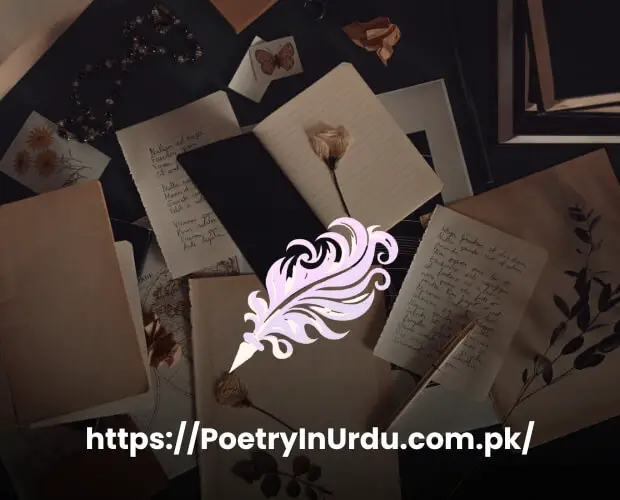Urdu poetry holds a unique place in the world of literature, celebrated for its depth, grace, and emotional richness. Emerging during the Mughal era, Urdu poetry is a fascinating amalgamation of Persian, Arabic, and local languages, creating a powerful medium to express complex human emotions with simplicity and elegance. Over centuries, it has evolved to reflect the cultural and social ethos of South Asia, resonating with themes like love, mysticism, sorrow, and beauty.
The Origins and Evolution
Urdu poetry began as a blend of local dialects and Persian influence, thriving in the courts of Mughal emperors. Over time, it absorbed various cultural nuances, including Sufism, which deeply influenced its spiritual and mystical dimensions. Great poets like Amir Khusro, considered one of the earliest contributors to Urdu, and Mirza Ghalib, who later became synonymous with Urdu literature, shaped its trajectory.
Urdu poetry grew to embody several forms, each distinct in style and rhythm. Among the most popular are:
- Ghazal: A poetic form comprising rhyming couplets that often focus on themes of love, loss, and mysticism. The ghazal’s allure lies in its emotional intensity and the poet’s ability to express vast sentiments in just a few lines.
- Nazm: Unlike the ghazal, which is structured around independent couplets, the nazm is a continuous poem that deals with various topics, from personal reflections to nationalistic fervor. Nazm allows for greater narrative flow and philosophical depth.
- Rubai: This is a four-line stanzaic form of poetry that often conveys philosophical or romantic themes with brevity and wit.
- Marsiya and Qasida: Marsiya is an elegiac poem, particularly commemorating the tragedy of Karbala, while Qasida often praises kings or noble figures.
Prominent Urdu Poets
Urdu poetry is rich with legendary poets whose work has transcended time. Here are a few names who have left indelible marks on the literary landscape:
- Mirza Ghalib: Perhaps the most celebrated Urdu poet, Ghalib’s poetry reflects an existential quest and a deep understanding of love and loss. His ghazals are timeless.
- Allama Iqbal: A philosopher-poet, Iqbal used poetry to inspire thoughts of freedom and spiritual awakening. His work motivated an entire generation during the Indian independence movement.
- Faiz Ahmed Faiz: Known for his revolutionary and romantic poetry, Faiz’s verses have been widely admired for their lyrical beauty and profound political commentary.
- Mir Taqi Mir: Often called the ‘God of Urdu Poetry,’ Mir is known for his heart-wrenching ghazals that vividly capture the pain of love and life.
The Beauty of Urdu Poetry
Urdu poetry is not just about words; it’s about emotions, philosophy, and the articulation of the soul’s deepest thoughts. Its beauty lies in its ability to convey complex ideas in a manner that resonates with both the heart and mind. The language itself, with its lyrical rhythm and rich vocabulary, enhances the experience of listening to or reading Urdu poetry.
Below are a few verses that exemplify the charm and elegance of Urdu poetry:
Ghalib’s timeless couplet on the mysteries of life:
“Hazaaron khwaahishein aisi ke har khwaahish pe dam nikle,
Bahut nikle mere armaan lekin phir bhi bht kam nikle.”
(A thousand desires, each worth dying for,
Many of them were fulfilled, yet still not enough.)
Faiz Ahmed Faiz’s soulful expression of love and revolution:
“Gulon mein rang bhare, baad-e-naubahar chale,
Chale bhi aao ke gulshan ka karobar chale.”
(Let the flowers be filled with color, let the spring breeze blow,
Come back, so that the garden may prosper once more.)
Mir Taqi Mir’s poignant portrayal of love:
“Ibtidaa-e-ishq hai rota hai kya,
Aage aage dekhiye hota hai kya.”
(It’s only the beginning of love, why do you weep?
Just wait and see what unfolds ahead.)
Conclusion
Urdu poetry, with its rich tradition, intricate language, and deep philosophical undertones, continues to captivate audiences globally. Whether it’s the heartache in a ghazal, the wisdom in a rubai, or the spiritual longing in a sufi verse, Urdu poetry speaks to the universal human experience. For those who delve into its depths, it offers a world of emotional resonance, beauty, and timeless wisdom. Its legacy is one that connects hearts, transcending boundaries of time, space, and culture.



